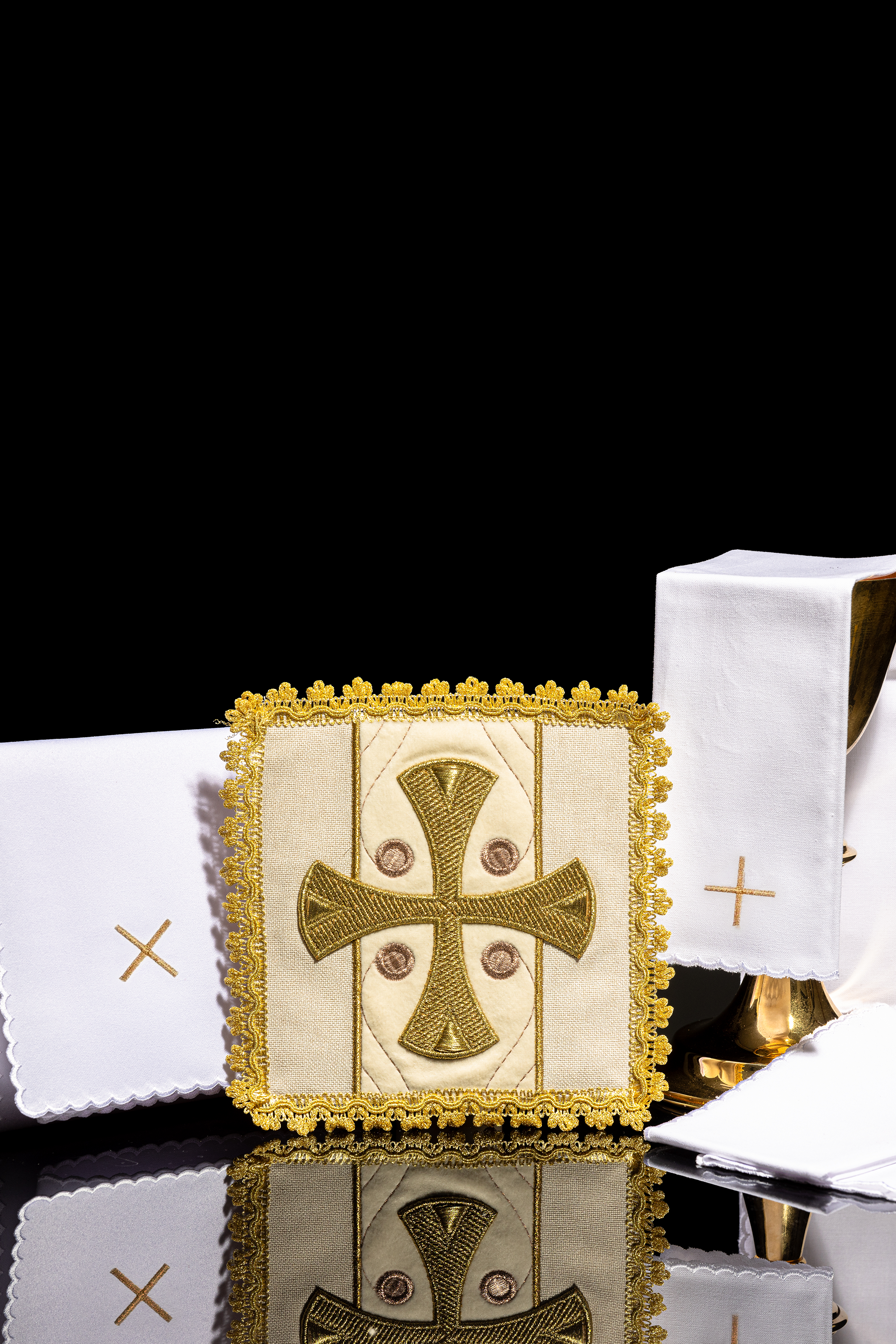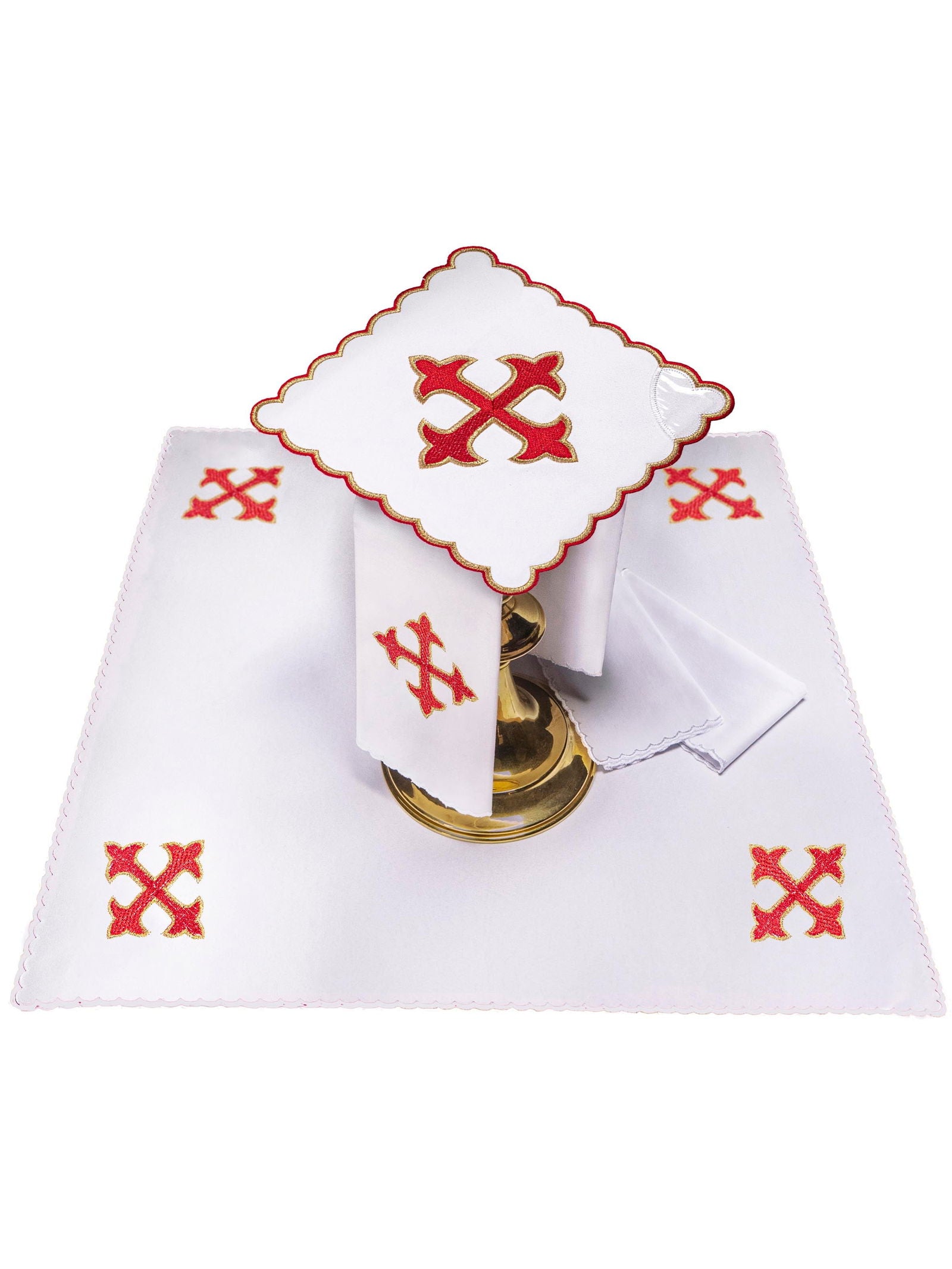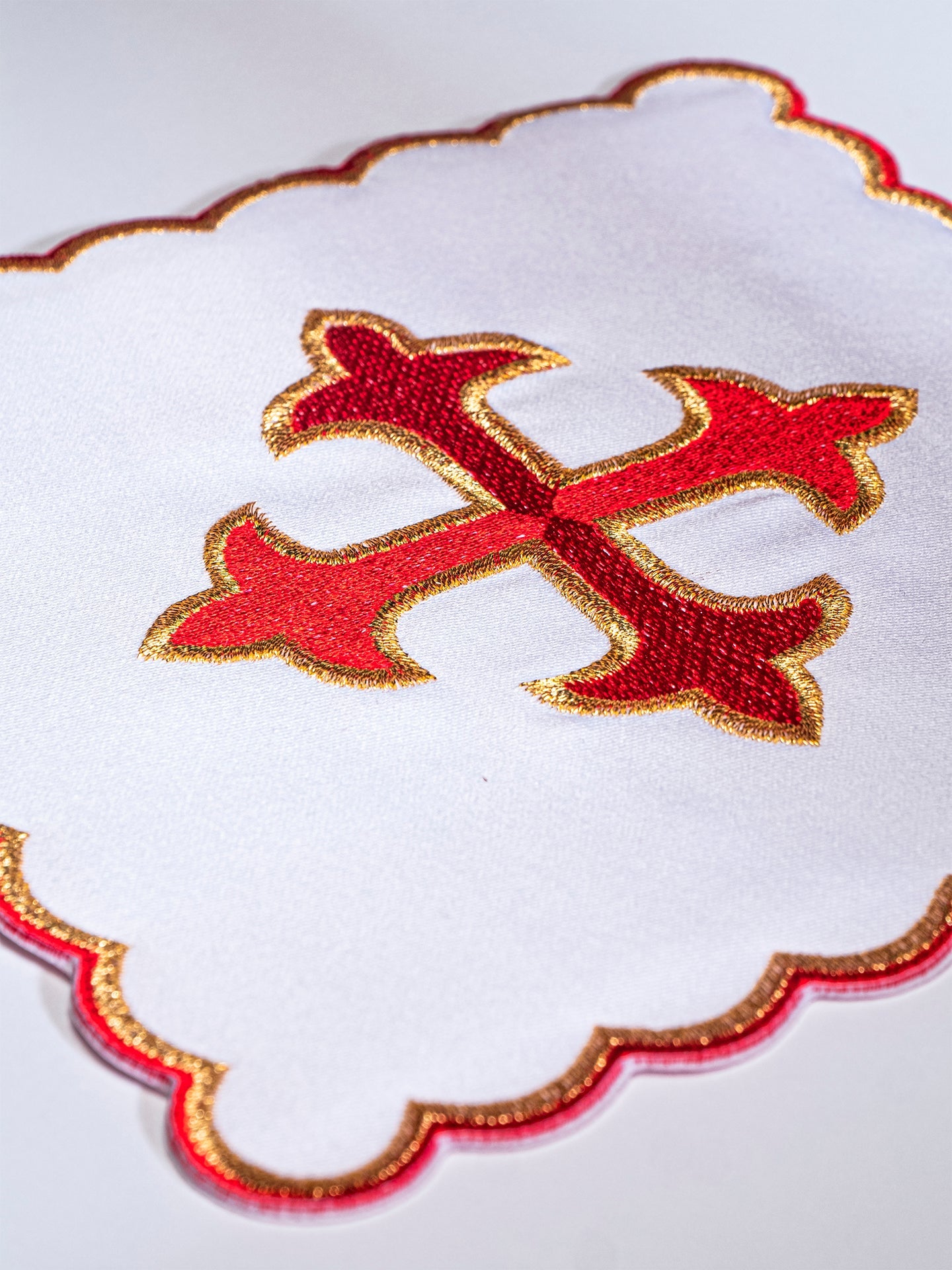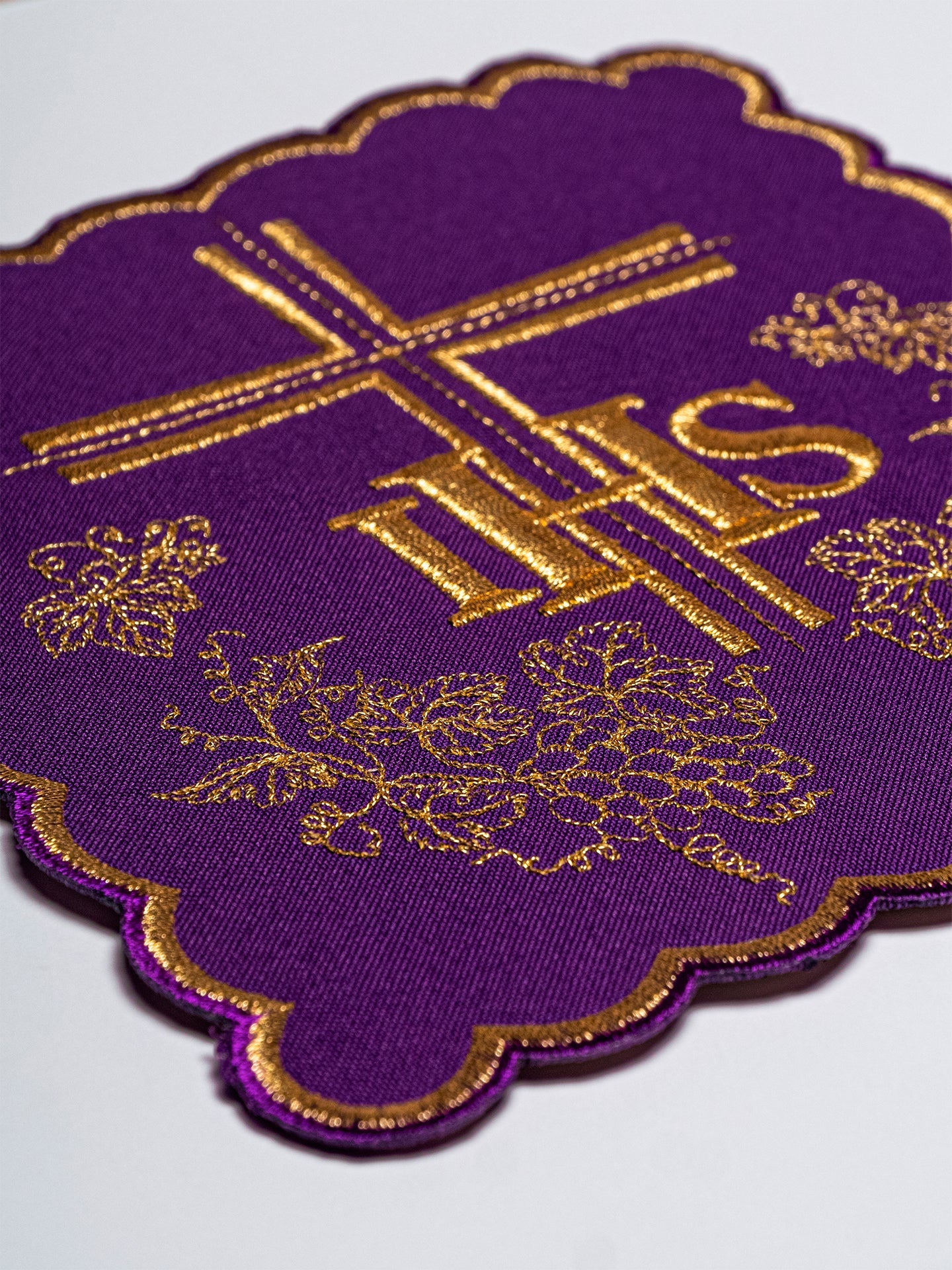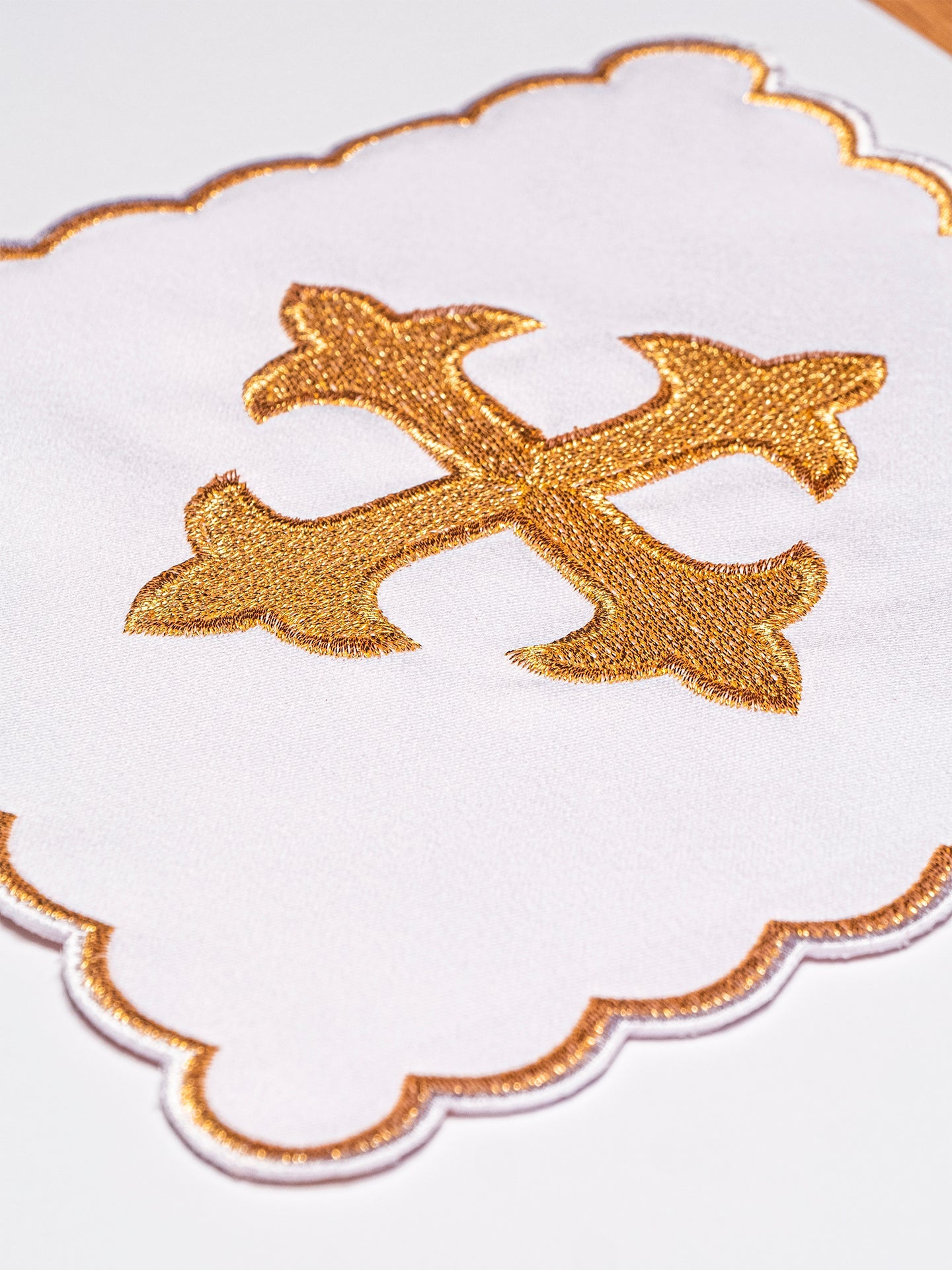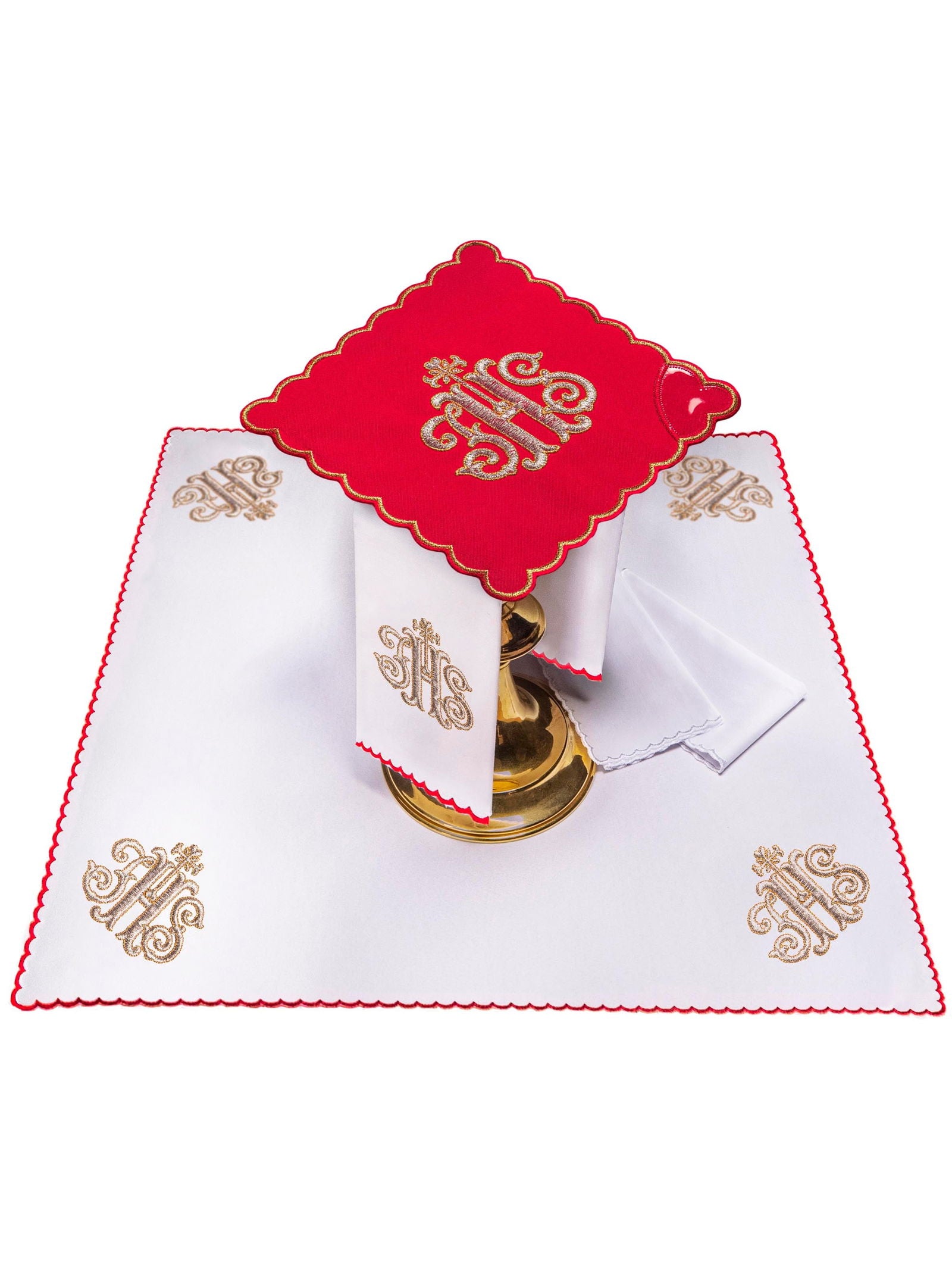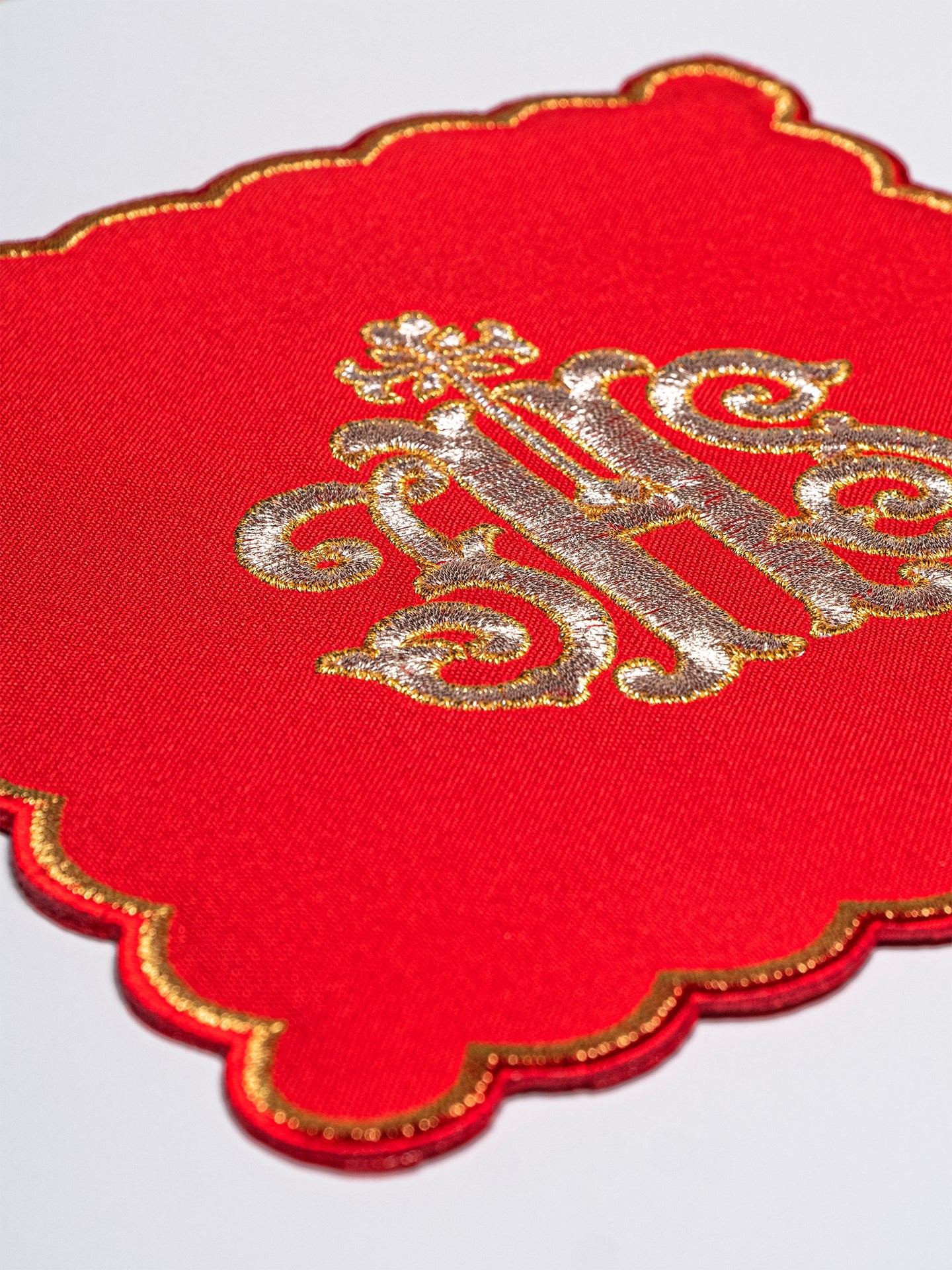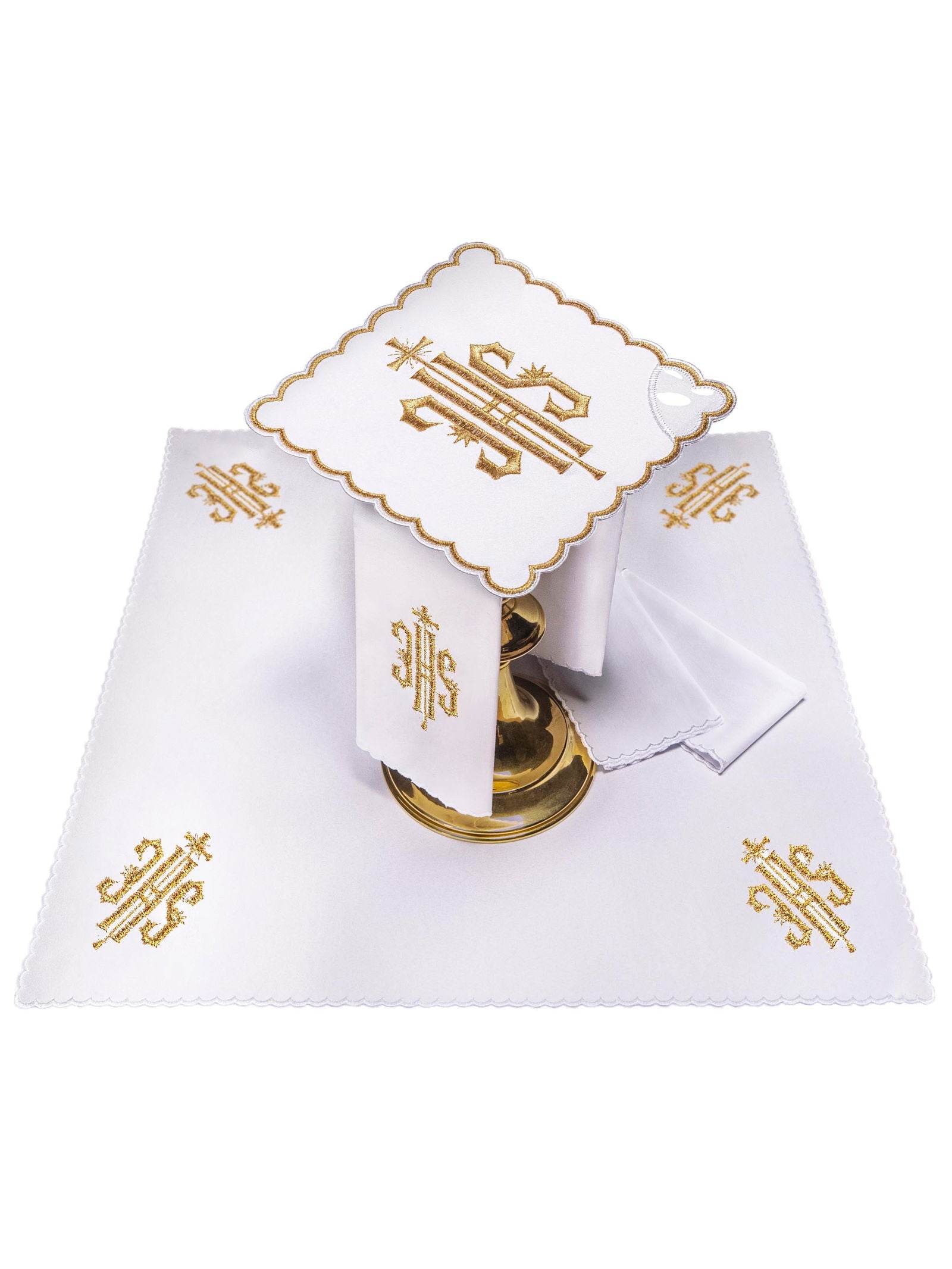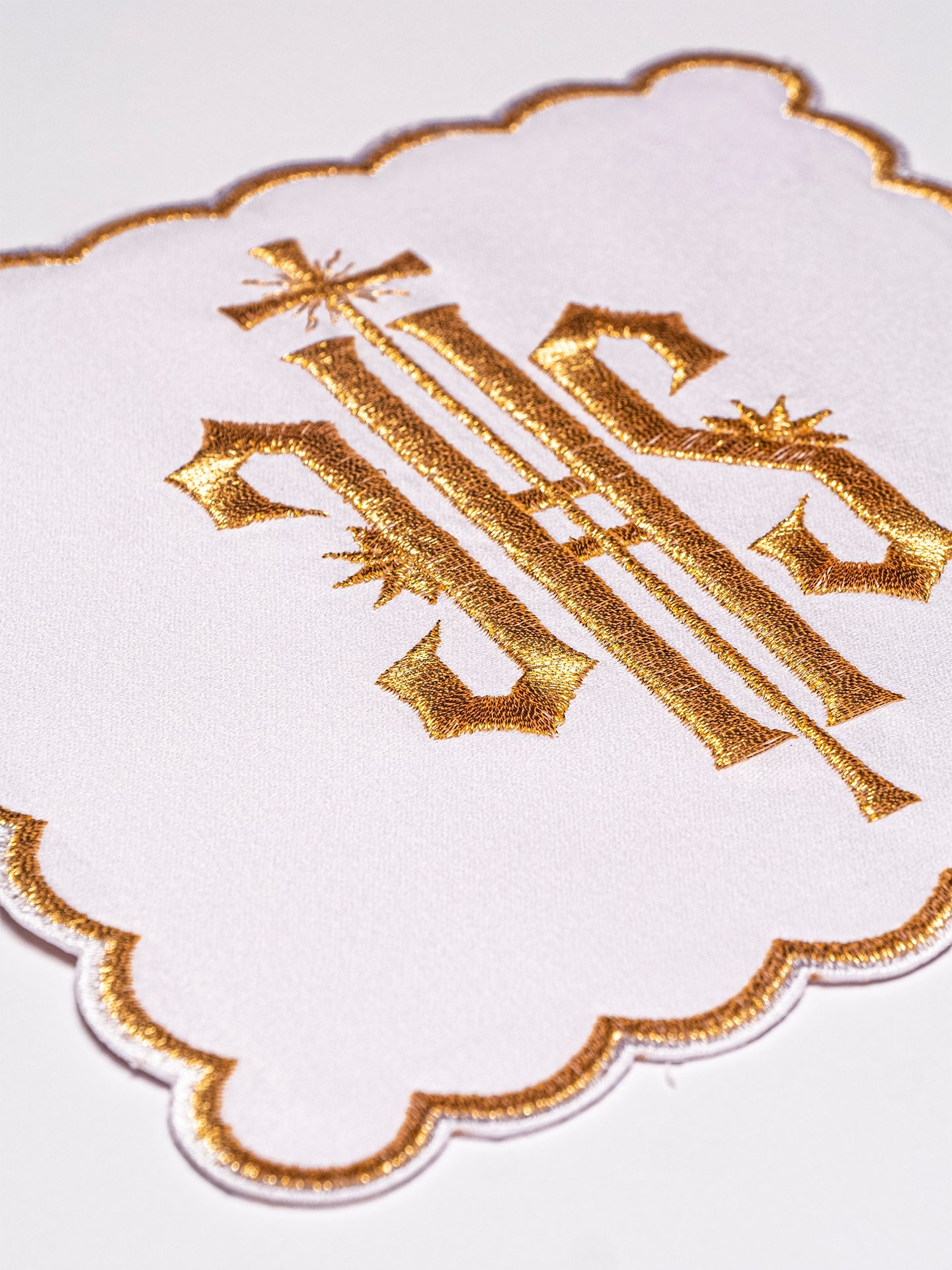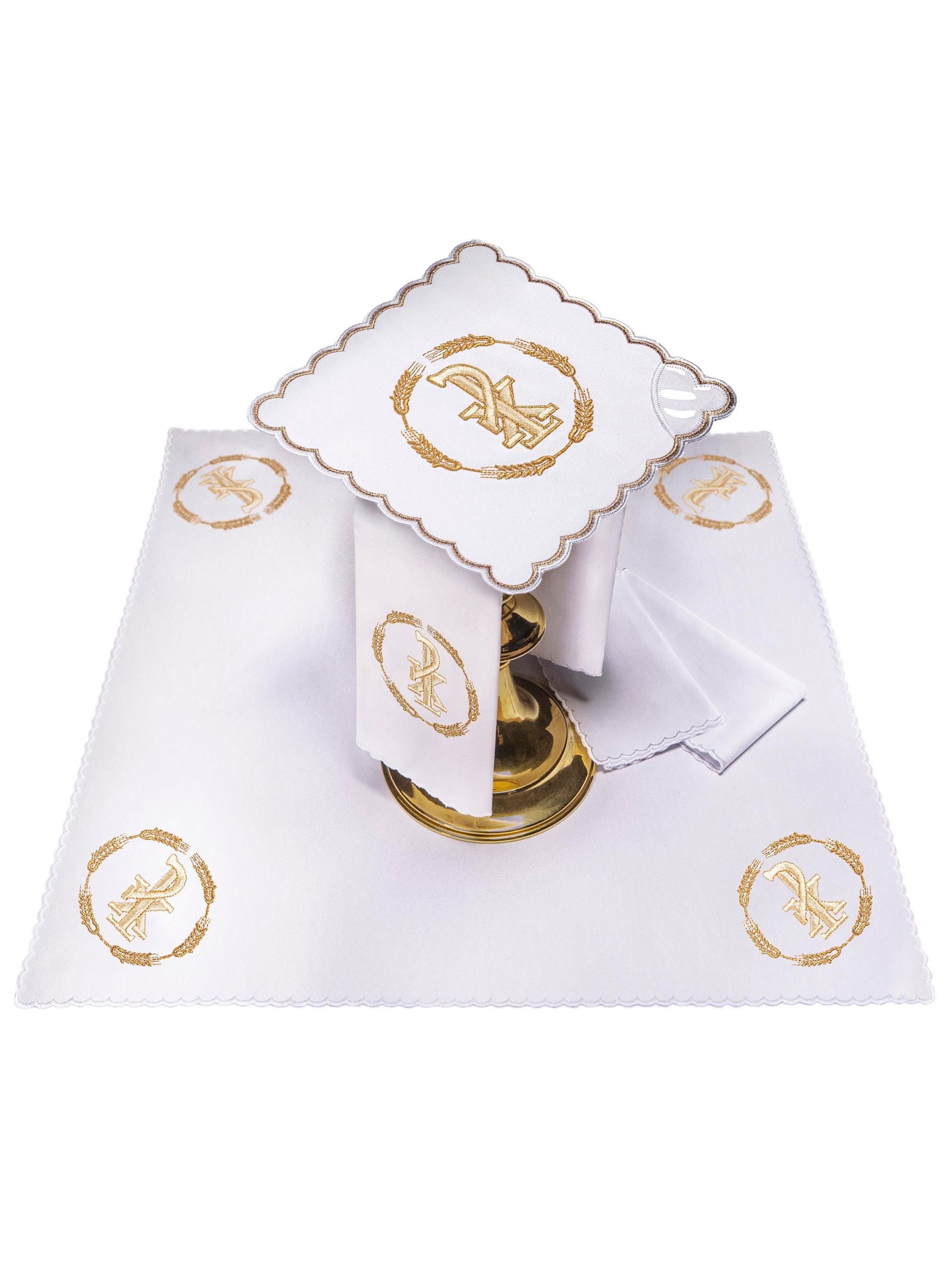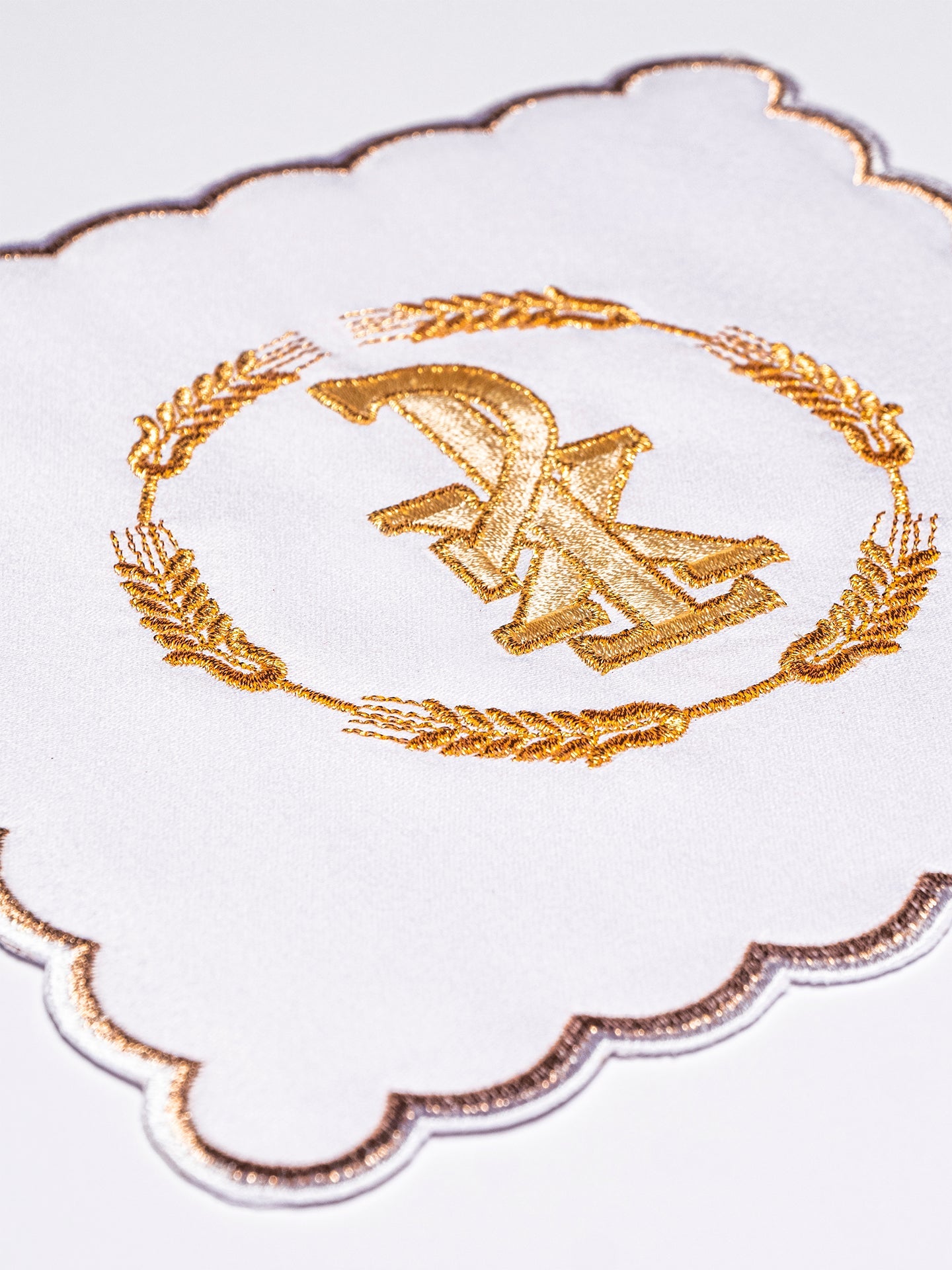Cotton Chalice Sets: The Epitome of Reverence and Practicality
Understanding the Significance of Chalice Sets in Liturgical Celebrations
In the sacred realm of liturgical practices, the chalice set holds a place of profound significance. It is not merely a collection of vessels it is an ensemble of instruments that facilitates the most holy sacrament of the Eucharist. The chalice, paten, purificator, pall, and corporal—each component plays a vital role in the consecration and consumption of the wine and bread, symbolizing the body and blood of Christ.
The chalice, derived from the Latin word calix, is the cup used to hold the wine that becomes the blood of Christ during the Mass. The paten, a small plate, holds the host, which transforms into the body of Christ. Together, they are the focal points of the Eucharistic celebration, representing the ultimate sacrifice and the communion between God and humanity.
Beyond the chalice and paten, the other elements of the chalice set contribute to the reverence and solemnity of the liturgy. The purificator, typically made of linen or cotton, is used to cleanse the chalice and paten after communion, ensuring that no remnants of the sacred elements are left behind. The pall, a stiffened square of linen, covers the chalice to protect its contents from dust and insects. The corporal, a larger linen cloth, is spread on the altar to provide a clean and sacred space for the chalice and paten during the consecration.
The materials used in chalice sets reflect the solemnity and dignity of the Eucharistic celebration. Gold, silver, and other precious metals have traditionally been favored for chalices and patens, symbolizing the sacredness of the Eucharist. However, practical considerations also play a role in the selection of materials. Durability, ease of cleaning, and resistance to corrosion are all important factors.
In recent years, cotton chalice sets have gained popularity as a practical and reverent alternative to traditional linen sets. Cotton offers several advantages, including its softness, absorbency, and ease of care. Cotton chalice sets are also more affordable than linen sets, making them accessible to a wider range of parishes and individuals.
The Practical Advantages of Choosing Cotton Chalice Sets
When it comes to selecting materials for liturgical linens, cotton stands out as a practical and versatile option. Its inherent properties make it well-suited for the demands of regular use in religious settings.
One of the key advantages of cotton is its exceptional absorbency. During the Holy Communion, the purificator is used to cleanse the chalice and paten. Cotton's high absorbency ensures that all traces of wine are effectively removed, maintaining the sanctity of the vessels. This is particularly important to prevent any accidental spills or stains on the altar cloths and vestments.
Durability is another significant benefit of cotton. Liturgical linens are subjected to frequent washing and ironing, which can take a toll on delicate fabrics. Cotton, however, is known for its strength and resilience. It can withstand repeated laundering without losing its shape or integrity. This makes cotton chalice sets a long-lasting investment for parishes and individuals.
Furthermore, cotton is incredibly easy to care for. Unlike linen, which often requires special handling and ironing, cotton can be machine washed and dried without any hassle. This convenience is particularly appreciated by sacristans and altar servers who are responsible for maintaining the cleanliness and appearance of liturgical linens.
In addition to its practical advantages, cotton is also a more affordable option compared to linen. This makes cotton chalice sets accessible to a wider range of parishes, especially those with limited budgets. The cost savings can be significant, allowing parishes to allocate resources to other important ministries and programs.
The softness of cotton is another noteworthy advantage. The purificator, made of soft cotton, is gentle on the chalice and paten, preventing any scratches or damage to the delicate surfaces. The softness of cotton also adds to the comfort of those who handle the liturgical linens during the Holy Communion.
The Reverence and Symbolism Embodied in Cotton Chalice Sets
While practicality is a significant consideration, the reverence and symbolism associated with liturgical linens are equally important. Cotton chalice sets, despite their simplicity, can embody the sacredness and solemnity of the Eucharistic celebration.
The use of natural fibers, such as cotton, connects us to the earth and to the origins of our faith. Cotton, derived from the cotton plant, is a reminder of God's creation and the bounty of the earth. It symbolizes humility, purity, and simplicity—qualities that are essential in our relationship with God.
The whiteness of cotton chalice sets represents purity and innocence. It symbolizes the spotless sacrifice of Christ and the cleansing power of the Eucharist. The whiteness of the linens also creates a sense of reverence and solemnity, drawing our attention to the sacredness of the moment.
The careful handling and maintenance of cotton chalice sets demonstrate our respect for the Eucharist. By keeping the linens clean and well-cared for, we show our appreciation for the gift of the body and blood of Christ. This act of reverence extends beyond the liturgical celebration and into our daily lives, reminding us to treat all things sacred with care and respect.
The simplicity of cotton chalice sets can also be a powerful reminder of the humility of Christ. Jesus, despite being the Son of God, chose to live a simple life and to associate with the poor and marginalized. Cotton chalice sets, in their simplicity, can help us to emulate Christ's humility and to focus on the essential elements of our faith.
The use of cotton chalice sets can also be a way to express our concern for the environment. Cotton, as a natural fiber, is biodegradable and sustainable. By choosing cotton chalice sets, we can reduce our reliance on synthetic materials and contribute to a more environmentally friendly approach to liturgical practices.
The Craftsmanship and Artistry in Creating Exquisite Cotton Chalice Sets
The creation of cotton chalice sets is not merely a matter of sewing pieces of fabric together. It is an art form that requires skill, precision, and attention to detail. The craftsmanship involved in creating exquisite cotton chalice sets reflects the reverence and solemnity of the Eucharistic celebration.
The selection of high-quality cotton is the first step in creating a beautiful and durable chalice set. The cotton should be soft, absorbent, and resistant to wear and tear. It should also be free of any blemishes or imperfections.
The cutting and sewing of the cotton fabric require precision and skill. The pieces must be cut accurately to ensure that they fit together perfectly. The seams must be sewn securely to prevent fraying and to ensure the longevity of the set.
Embroidery and other embellishments can add a touch of elegance and symbolism to cotton chalice sets. Crosses, grapes, wheat, and other Christian symbols can be embroidered onto the linens to enhance their meaning and beauty. The embroidery should be done with care and precision, using high-quality threads.
The finishing touches are just as important as the initial steps in creating exquisite cotton chalice sets. The linens should be carefully ironed and folded to ensure that they are presentable and ready for use. Any loose threads should be trimmed, and any imperfections should be addressed.
The creation of cotton chalice sets is often a labor of love, undertaken by skilled artisans who are dedicated to serving the church. Their craftsmanship and artistry reflect their reverence for the Eucharist and their desire to create beautiful and meaningful liturgical linens.
When purchasing cotton chalice sets, it is important to look for quality craftsmanship and attention to detail. A well-made chalice set will not only enhance the beauty of the liturgy but will also last for many years to come.
Caring for Your Cotton Chalice Sets: Ensuring Longevity and Reverence
Proper care and maintenance are essential for ensuring the longevity and reverence of your cotton chalice sets. By following a few simple guidelines, you can keep your linens clean, fresh, and ready for use in liturgical celebrations.
Washing is the most important aspect of caring for cotton chalice sets. The linens should be washed regularly to remove any stains or residue. It is best to wash the linens by hand using a mild detergent. If machine washing is necessary, use a gentle cycle and avoid using bleach or harsh chemicals.
Ironing is also important for maintaining the appearance of cotton chalice sets. The linens should be ironed while they are still slightly damp. Use a medium heat setting and avoid ironing over any embroidery or embellishments.
Storage is another key consideration. Cotton chalice sets should be stored in a clean, dry place away from direct sunlight. Avoid storing the linens in plastic bags, as this can trap moisture and lead to mildew growth.
Stain removal should be addressed promptly. If a stain occurs, treat it immediately with a stain remover. Avoid using harsh chemicals or scrubbing the fabric vigorously, as this can damage the fibers.
Regular inspection is also important. Check the linens regularly for any signs of wear and tear. Repair any small tears or holes promptly to prevent them from becoming larger.
By following these simple guidelines, you can ensure that your cotton chalice sets remain in good condition for many years to come. Proper care and maintenance not only prolong the life of the linens but also demonstrate your respect for the Eucharist and your commitment to liturgical excellence.
Choosing the Right Cotton Chalice Set for Your Liturgical Needs
Selecting the perfect cotton chalice set involves careful consideration of various factors to ensure it aligns with your specific liturgical requirements and preferences.
The size of the chalice set is an important consideration. The corporal should be large enough to accommodate the chalice and paten comfortably. The purificator should be of a size that is easy to handle and use effectively. The pall should fit snugly over the chalice to protect its contents.
The design of the chalice set is also a matter of personal preference. Some prefer simple, unadorned linens, while others prefer more elaborate designs with embroidery or lace. Choose a design that reflects your personal taste and the style of your parish.
The quality of the cotton is a critical factor. Look for high-quality cotton that is soft, absorbent, and durable. Avoid cotton that is thin or flimsy, as it will not hold up well to repeated washing and ironing.
The craftsmanship of the chalice set is also important. Look for well-made linens with secure seams and neat finishing. Avoid chalice sets that are poorly made or have loose threads.
The price of the chalice set is a consideration for many. Cotton chalice sets are generally more affordable than linen sets, but the price can vary depending on the quality of the cotton, the design, and the craftsmanship.
The availability of customization is another factor to consider. Some vendors offer the option of customizing cotton chalice sets with embroidery or other embellishments. This can be a way to create a unique and personalized chalice set.
By considering these factors carefully, you can choose the right cotton chalice set for your liturgical needs. A well-chosen chalice set will enhance the beauty of the liturgy and serve you well for many years to come.
The Future of Cotton Chalice Sets: Innovation and Sustainability
As liturgical practices evolve and environmental concerns grow, the future of cotton chalice sets is likely to be shaped by innovation and sustainability.
The development of new and improved cotton fabrics is one area of innovation. Researchers are working to create cotton fabrics that are even softer, more absorbent, and more durable. They are also exploring ways to make cotton more resistant to stains and wrinkles.
The use of organic cotton is another trend that is likely to continue. Organic cotton is grown without the use of harmful pesticides or fertilizers, making it a more environmentally friendly option. Organic cotton chalice sets are becoming increasingly popular among those who are concerned about the environment.
The incorporation of sustainable manufacturing practices is also gaining momentum. Some vendors are now using recycled water and energy-efficient equipment to produce cotton chalice sets. They are also working to reduce waste and minimize their environmental impact.
The design of cotton chalice sets is also likely to evolve. Designers are exploring new ways to incorporate symbolism and artistry into the linens. They are also experimenting with different colors and textures to create chalice sets that are both beautiful and meaningful.
The use of technology is also likely to play a role in the future of cotton chalice sets. Computer-aided design (CAD) and computer-aided manufacturing (CAM) technologies can be used to create more precise and intricate designs. 3D printing can also be used to create custom-made chalice sets.
As innovation and sustainability continue to shape the future of cotton chalice sets, these liturgical linens are likely to become even more practical, reverent, and environmentally friendly.







